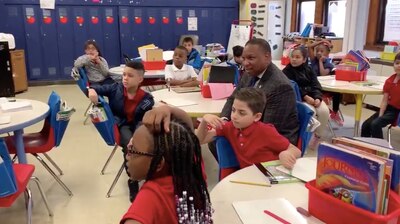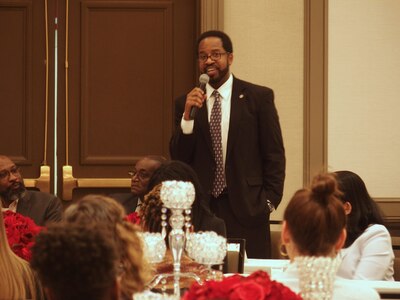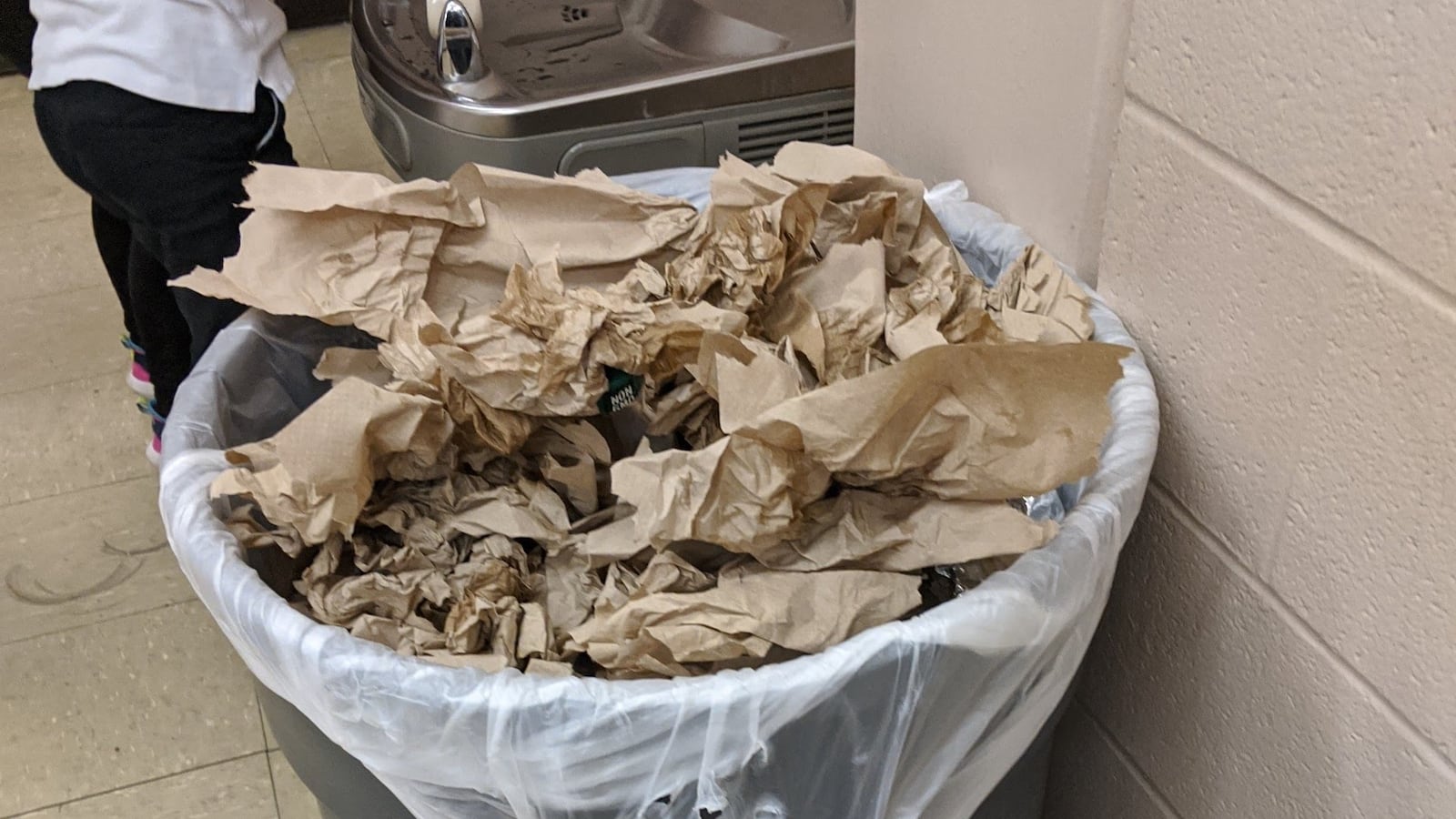Update, March 11, 2020: The Shelby County Health Department has cleared the employee to go back to work as of Tuesday evening, which marks 14 days since he came in contact with the COVID-19 patient. Superintendent Joris Ray said the employee is scheduled to return to work after spring break.
When Treadwell Elementary School teacher Gretchen Biere walked into her classroom Tuesday morning, she immediately knew it hadn’t been cleaned the previous night after a tumultuous school day when staff, parents, and students learned a school employee had been quarantined for coming into contact with a COVID-19 patient.
The trash in her classroom hadn’t been taken out, and the trash can outside a nearby bathroom was full of paper towels. In another teacher’s classroom, a child’s spilled drink had left a sticky spot on the floor that was still there the next day.
“Logistically, the district is promising all these grand gestures of cleaning and giving us more supplies and yet … our floor isn’t cleaned,” said Biere, who teaches a second-grade English-Spanish dual language class.
The new coronavirus has amplified concerns about cleanliness in Memphis schools and resurfaced concerns Superintendent Joris Ray sought to address early in his administration. There’s no immediate coronavirus risk at the school, Shelby County Health Department Director Alisa Haushalter said at a press conference Monday. The quarantined employee had not shown any symptoms as of Monday, and if symptoms develop, he or she will be tested.
“We were told there was going to be some thorough cleaning and they wouldn’t need to close the school. That does not appear to have happened,” said Jake Pritchard, a fourth-grade teacher at Treadwell Elementary. “Our school is pretty dirty right now… It does not look like it’s been scrubbed in any kind of way.”
On Friday, before the employee was quarantined, Treadwell’s parent group noted that the school often runs out of soap and wasn’t prepared to contain the risk of children spreading potentially dangerous germs, said Lori Gilbert, the president of Treadwell Elementary’s Partners in Education.

Jerica Phillips, a district spokeswoman, said the night cleaning crew was at Treadwell Elementary and “performed their duties.” Ray visited the school Tuesday and saw cleaning crews at work. The district instructed crews to perform the same cleaning procedures an extra time.
“He wanted to inspect what he expects. He saw that it was being done,” she said, adding he is still looking to hold custodial teams accountable at all schools.
Tuesday afternoon, teachers observed custodial staff wiping down doorknobs, stair rails and other frequently touched items. Pritchard noted that the district provided disinfectant wipes, but he had not received any all day.
Soon after Ray first took the helm of Shelby County Schools last year, he put stiffer penalties and accountability measures in the custodial contracts for ServiceMaster and Aramark. He and his staff noted a “low sense of pride in keeping schools cleaner,” inconsistent cleanliness, high staff turnover, and slow response to emergencies in a presentation to school board members in May. Chalkbeat was not able to confirm if any penalties have been given since then.
Aramark’s contract includes two custodians for Treadwell Elementary and four for Treadwell Middle and an adjoining district office, the epicenter of coronavirus worries since the quarantined employee was assigned to both schools. Together, the two companies cost the district about $29 million in services and administration costs, which is about $13 million less than when the district directly employed janitors. The district’s janitors were paid about $13 per hour; Service Master and Aramark employees are paid up to $9 per hour, according to the district.

Districtwide, Genard Phillips, the chief of business operations, said staff were already wiping down bus seats before and after runs and that his team was working to “strengthen all the protocols and procedures associated with how we clean and maintain buildings.” He also is planning a deep cleaning of all schools next week during spring break.
He added that staff are checking restrooms three times a day and restocking more hand sanitizer, antibacterial soap, and paper towels than usual to ensure that “we don’t run out of those materials because we of course expect a higher usage of those items.”
At Snowden School, running out of soap and paper towels is a weekly occurrence, said Amy Dixon, a kindergarten teacher who has been at the school for eight years. She estimates she buys 30 rolls of paper towels and 10 bottles of soap every year for her students. She said this is not the first time there’s been a disconnect between district expectations and what its janitorial contractors deliver.
“It’s disruptive when I have to come back [to the classroom from the bathroom] and get stuff. And it’s expensive,” she said. “But most importantly it’s a health issue for the children and every staff in the school and sends a message to the kids that they’re not taken care of.
“When we had employees at our school that were employed by SCS they were here very consistently,” said Dixon, the Snowden teacher. “Our school was infinitely cleaner.”
Gilbert, the parent group president at Treadwell Elementary, said she is turning to other parents to bring more soap and hoping for the best.
“We don’t have enough people working,” she said.
This article answers questions raised by our readers. Share your coronavirus-related questions, concerns, and ideas here, and keep up with our reporting on COVID-19 here.


